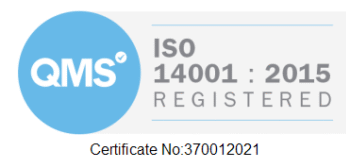Understanding the Durability of Toughened Glass

Toughened glass, often chosen for its superior strength and safety features, plays a crucial role in various applications ranging from architectural designs like balustrades and shower screens to functional pieces like partitions and cabinets. This guide delves into the robust nature of toughened glass, exploring its manufacturing, safety benefits, longevity, and maintenance requirements.
What is Toughened Glass?
Toughened glass, also known as tempered glass, is a type of safety glass processed by controlled thermal or chemical treatments to increase its strength compared with normal glass. The process makes it much tougher than standard glass and changes how it breaks, which is essential for its safety characteristics. Here’s a deeper look into its manufacturing process and how it differs from regular glass:
The Detailed Manufacturing Process of Toughened Glass
Toughened glass is made through a process of extreme heating and rapid cooling. Here’s how it happens:
- Heating: The glass is first cut to size and then heated to over 600 degrees Celsius, making it soft and malleable.
- Rapid Cooling: After reaching high temperatures, the glass is rapidly cooled with jets of cold air in the tempering furnace. This process, called quenching, cools the outer surfaces much quicker than the centre and sets up stress patterns within the glass.
- Stress Creation: The rapid cooling puts the surfaces and edges of the glass into compression and the inner part into tension. This stress pattern makes the glass much stronger and if broken, causes it to crumble into small granular chunks instead of jagged shards.
Key Differences Between Toughened Glass and Regular Glass
The main differences between toughened glass and regular glass lie in their strength, safety features, and manufacturing process:
Strength and Durability of toughened glass:
Toughened glass is up to five times stronger than regular glass due to the stresses created during the quenching process in its manufacturing. This increased strength makes it ideal for use in high-stress, high-traffic areas where safety is paramount.
Safety Features:
Unlike regular glass, which shatters into sharp shards that can cause serious injuries, toughened glass breaks into small, blunt pieces that are far less likely to cause injury. This characteristic makes it an essential material for many safety applications.
Thermal Resistance:
Toughened glass can withstand higher temperatures and sudden changes in temperature. This property is particularly beneficial for applications like glass doors and facades that experience significant temperature variations.
Cost and Manufacturing:
Manufacturing toughened glass is more intensive and costly due to the additional processing required. However, the benefits of durability and safety offset the initial higher cost.
These properties highlight why toughened glass is preferred in environments where safety and durability are required, setting it apart from regular glass. Whether it’s used for glass balustrades, Juliet balconies, kitchen splashbacks, table tops, or shower screens, toughened glass provides a robust, safe, and reliable option.
Is Toughened Glass Really Safe?
Toughened glass is renowned for its safety characteristics, making it a preferred material in high-risk areas. Key safety benefits include:
- Enhanced impact resistance which prevents breakage under force.
- Safety in breakage, as it shatters into small, less harmful pieces.
- Heat resistance which makes it ideal for high-temperature environments.
- The ability to withstand rapid temperature changes, reducing the risk of thermal breakage.
How Long Does Toughened Glass Last?
The longevity of toughened glass is one of its standout features. Under normal conditions, toughened glass can last for many years without losing its integrity or appearance. Factors influencing its lifespan include:
- Environmental conditions such as exposure to harsh weather.
- Frequency and quality of maintenance.
- The level of physical stress it is subjected to in its application.
How Do You Maintain Toughened Glass?
Maintaining toughened glass is straightforward but crucial for preserving its clarity and durability. A proper maintenance routine ensures your glass remains in prime condition for a longer period. Maintenance tips include:
- Regular cleaning with suitable glass cleaning agents to avoid the buildup of stains and contaminants.
- Periodic inspections for any signs of wear or damage, especially around the edges and points of installation.
- Professional assessments or servicing, particularly for structural applications like glass balustrades or facades.
Order Bespoke Toughened Glass from Express Toughening!
At Express Toughening, we understand the critical role toughened glass plays in both safety and design. Whether you’re undertaking a new project or need replacements, our bespoke toughened glass solutions are tailored to meet your specific requirements. We offer:
- Customisation in size, shape, and thickness tailored to your project needs.
- Expert consultation to ensure optimal performance and aesthetics.
- Quick and reliable nationwide delivery.
For more information on our toughened glass products or to discuss your unique requirements, contact us. Our team is ready to assist you with expert advice and premium glass solutions.




